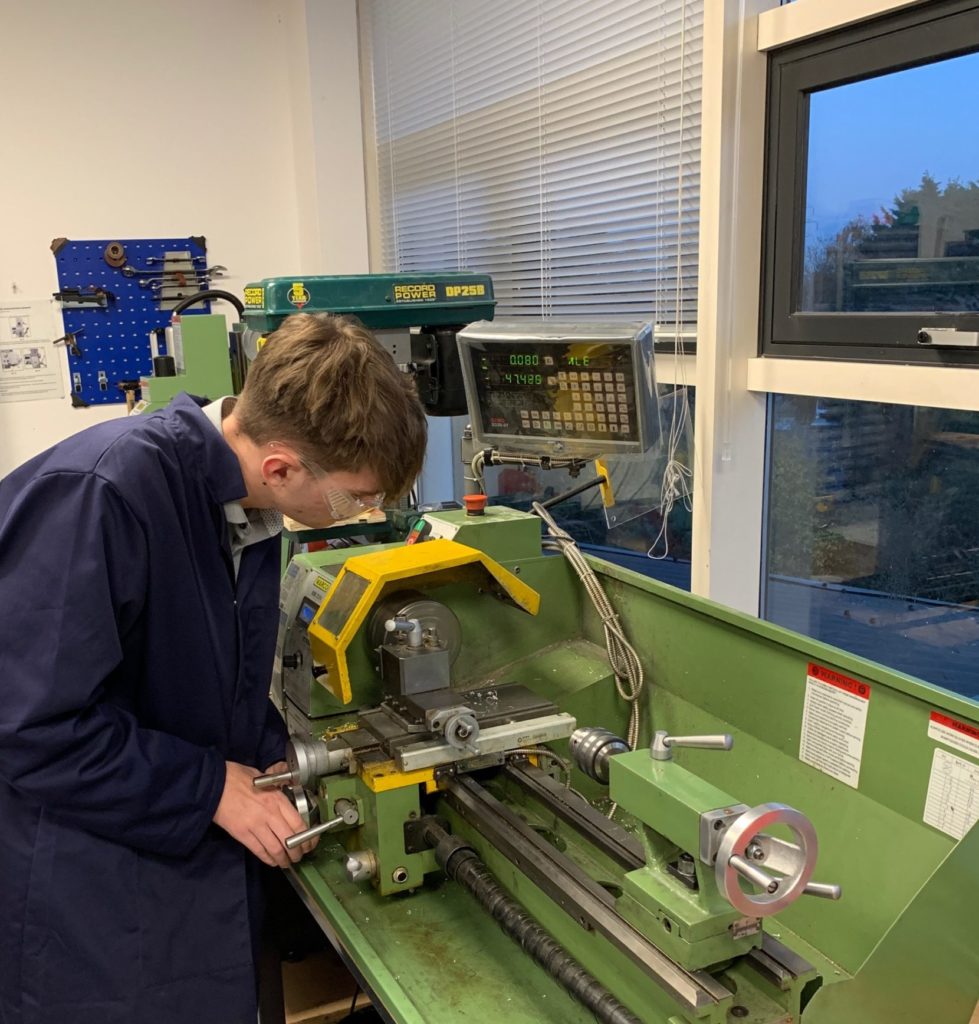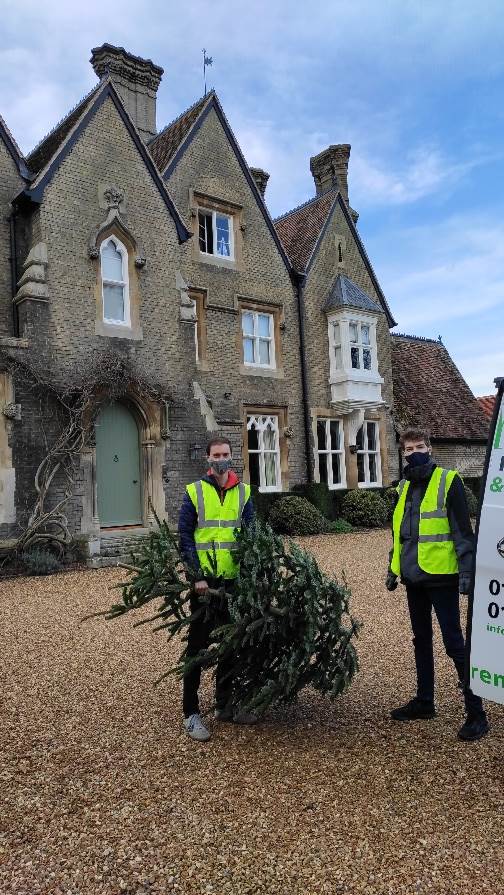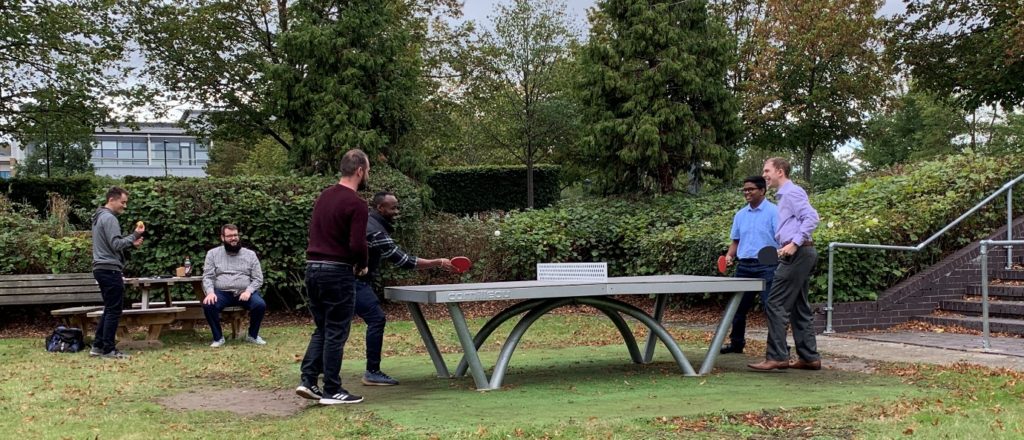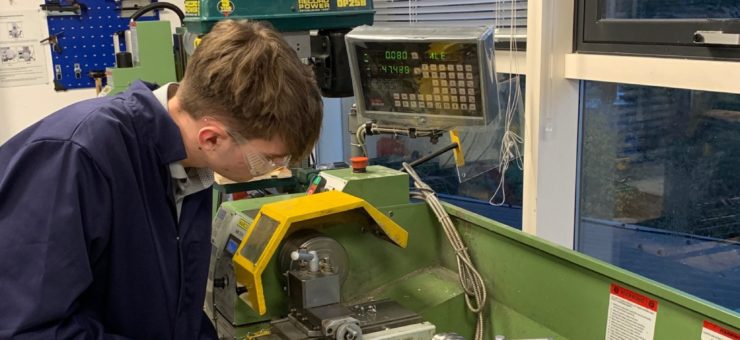The smart way to spend a gap year
24 January 2022
An insight into EDT’s Year In Industry scheme and why it might be the best thing you can do before starting your university degree!
Gap years are often seen as an opportunity to travel, broaden your horizons and find yourself. However, many young people may not see the value in a gap year, particularly considering travel restrictions caused by the pandemic. They may decide instead that it is more important to get on with starting a degree and entering a graduate position as quickly as possible, and therefore choose to head straight to university after finishing school.
Is there a way that students can use a gap year for personal development while developing their industrial skills?
The answer may lie with a scheme from the Engineering Development Trust (EDT) called the Year In Industry, as explained by a current student in that scheme at Springboard.
What is the Year In Industry scheme?
The Year In Industry (YINI) scheme is a year-long paid placement in a STEM-related company, in which a student becomes involved in projects and can learn to develop their professional skills. The EDT works with potential YINI students whether they are pre-university or mid-way through their degree, and helps to secure interviews for a placement.
Why did you apply to spend a year in industry?
While on an online EDT Headstart course in the summer between upper and lower sixth form, I heard of the scheme and decided to apply via the online application form after sending in my UCAS application. On my UCAS application I had applied to start university the following September, knowing that I could ask my university destination to defer for a year once I had successfully got a place on the YINI scheme. I decided to apply because I wanted to:
- test whether engineering was the right choice for my degree
- develop as many industry skills as I possibly could
- develop my independence skills outside of working
I also felt that the application process would help develop my interview skills and give me a chance to brush up my CV.

A fellow YINI student learning to use a lathe at Springboard.
What has been your experience of the scheme so far?
I am five months into my 12-month placement, and I have worked on various technical projects in different areas of the medical device field. This has included laboratory testing, statistical analysis, and design of CAD models. The benefits of being able to take a step away from academia and learn both practical and soft skills is invaluable, and I’m sure will help me focus on what I want to do after my placement has finished.
My experience so far has kept me engaged with my work and has answered my questions going into the placement. I have learned that engineering is a good fit for my current skill set and I have developed my industrial and independent living skills. Often, the most valuable lessons have come from trying an unfamiliar task. For example, creating a temperature sensor that could detect the temperature of a heat gun by using basic electrical components, an Arduino and new coding skills. This placement has taught me how to learn quickly and develop solutions to whatever problems I face.
My favourite moments so far have genuinely surprised me. From organising Chicken Club—a weekly lunchtime social event which involves a lot of rotisserie chicken and grilled halloumi sandwiches!—with my fellow YINI students, to various school outreach and charity activities. This has included a careers fair at a local school and organising a visit to the company for students in younger school years. On a recent charity day, my colleagues and I drove around collecting Christmas trees for donations to the Arthur Rank Hospice charity, which was a lot of fun.

The author (right) collecting Christmas trees with a colleague to help raise funds for Arthur Rank Hospice.
How do you apply?
You can apply at any point in the year, but to give themselves the best chance of securing a placement, most placement students apply in October or November of the year before they start. The application process involves online registration followed by a review by the EDT placement team. They will then ask you to upload your CV, and they will organise a short telephone interview to review and suggest changes to your CV to make it the best it can be. From there you will be emailed about different placements on offer, and you can choose the ones to which they will send your CV. This will hopefully secure an interview, and then if all goes well a placement at the company.
There are advantages of going through EDT’s scheme compared to independent application:
- Core Skill masterclasses are run throughout the placement that help develop your professional skills
- You can become accredited for an Industrial Cadet Platinum Award
- You are part of a group of students all experiencing a placement at the same time
The application process may sound like a lot, but it fitted around my busy school schedule, and let me choose which placements interested me from the ones sent to me or that I found on the vacancies page online: YINI register | EDT (etrust.org.uk)

Another fellow YINI student at Springboard (second from right) with a Springboard colleague (right) competing against another company in St John’s Innovation Centre, where Springboard is located.
Do you have any advice for future engineers and scientists?
Get as much experience as you can because the STEM field is very broad. Try as many different things as possible and you’ll eventually find what you’re most passionate about. That’s why a YINI is such a great opportunity, especially at a technical consultancy like Springboard, every day I get to try something new or attempt a different approach to a problem. I would also advise to develop your soft skills and nurture passions outside of STEM, because these will help you become a better engineer or scientist.
So, a YINI may be the right choice for a budding scientist or engineer who wants to experience the world of work and develop their skills before graduating. The experiences gained are invaluable to any student and will help develop those independent skills for those who are pre-university.
To learn more about the EDT’s YINI scheme and see their current vacancies, please visit their website.
– Chris Wordsworth


